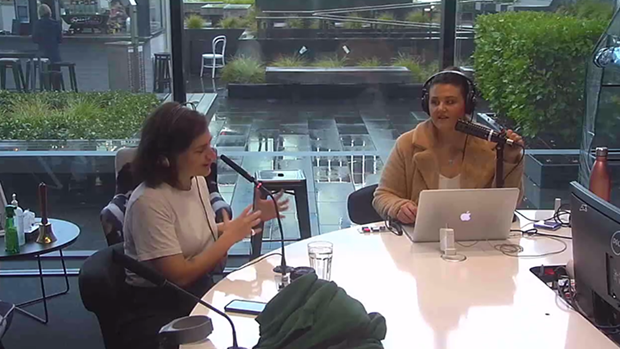Recently on ZM’s Fletch, Vaughan & Megan morning show, Green MP Chlöe Swarbrick was interviewed about the upcoming cannabis legalisation referendum. In the interview, Chlöe and her hosts gave several arguments in favour of voting “yes” to cannabis legalisation. However, while some of Chlöe’s points are compelling, on balance most of her positive points could be achieved through decriminalisation without the negatives of legalisation. By decriminalisation I mean a policy of making simple possession or use of cannabis a non-criminal offence (similar to a minor traffic violation) and treating cannabis use as a health issue instead of a criminal one. Legalisation on the other hand refers to allowing the possession, purchasing, selling, and using of cannabis for recreational purposes.
I’ll sum up Chlöe’s arguments as best I can, and then provide a short response. If you want to see her arguments in greater detail we have included a transcript here. If you want to see the evidence for my arguments in greater detail, see various on the Say Nope To Dope website.
Chlöe argued: People buying cannabis on the black market have no way of knowing if what they’re ingesting is safe or has anything extra added to it. Legal cannabis allows the government to regulate what a person can purchase, helping ensure that cannabis is free of toxins.
I respond: This is probably the single best argument for legalisation as opposed to decriminalisation. However, it appears that in places such as the USA and Canada where cannabis has been legalised, the black-market industry is still thriving since it is not subject to government regulations and thus can provide cheaper and stronger forms of cannabis. Therefore, while legalisation provides a safer option for cannabis users, it doesn’t prevent people getting their hands on more toxic, cheaper cannabis if they so desire.
Chlöe argued: Young people’s lives should not be ruined by getting a criminal record for smoking a joint at a party.
I agree. There is a good case for why we should investigate decriminalisation of cannabis usage, and treat cannabis use as a health issue, not a crime issue. But a key point is that we don’t need to legalise cannabis to make it a health issue, we just need to decriminalise it.
Chlöe argued: Everybody is already using it. Let’s make it legal, thus taking the sexiness out of it, and then we can have grown-up conversations about intoxication and addiction.
It seems to me that alcohol is viewed as quite a sexy drug, and it’s been legal for ages. What makes something “less sexy” is not whether it is legal or not, but the culture fostered around it. In reality, by promoting legalisation the Government is promoting the idea that cannabis is “sexy”, which contradicts, in spirit, the Government’s Smoke Free 2025 initiative.
Chlöe argued: in response to the argument “Why are we looking to legalise cannabis when we are looking to be smoke free 2025?” that the reason smoking is no longer “cool” was only made possible by the fact that smoking is legal.
The reason smoking isn’t cool anymore has nothing to do with it being legal. It has to do with a multiple decade-long campaign to show how damaging smoking is. Cigarette ads being banned, in addition to a consistent negative ad campaign against smoking, have helped to take the “sexiness” factor away from cigarettes. Legalisation is the only reason cigarettes are still around!
Vaughan [07:16]: “And we’ll get some sweet tax dollars from it, won’t we?”. Chlöe: [07:19] “I mean to the tunes of hundreds of millions of dollars”.
Yes, there will be tax revenue with the legalisation of cannabis. But if you’re going to talk about revenues, one also needs to talk about costs. You cannot just look at one side of the ledger. A bad way to look at any business is to only look at revenues. What are the costs? What are the costs to New Zealand in terms of drugged driving, public safety, public health, etc.? Annual societal costs from alcohol and tobacco far exceed the tax revenues they raise. Legalisation of cannabis will lead to increased use, which will lead to even greater societal costs for New Zealand.
Chlöe argued: Cannabis isn’t actually that bad for you. And if it’s legal, we can easily help the people who it is bad for.
While it is true that cannabis doesn’t affect everyone the same, it is nonetheless the case that cannabis usage can have very negative health consequences. There is an abundance of evidence-based research articles, papers and other literature covering the inherent physical, psychological, environmental, social, familial and community harms of cannabis. I support the view that we should help people by treating cannabis use as primarily a health issue rather than a crime issue, so that we remove the stigma of getting help for drug use. But on the other hand legalising the use of marijuana, and allowing it to be promoted by a big new industry, will inevitably increase its usage. That is an outcome that will be seriously bad for New Zealand society.
Conclusion
Instead of voting “yes” for legalisation, let’s instead ask lawmakers if they have done everything to reduce cannabis use as much as possible: prevention campaigns, health campaigns, educating doctors and paediatricians, early interventions and treatment, and investigating decriminalisation. We should exhaust all those avenues before we go down a path that is very difficult to reverse. Until we have done those things, we should vote “no” to the legalisation of cannabis in the upcoming referendum.









0 Comments